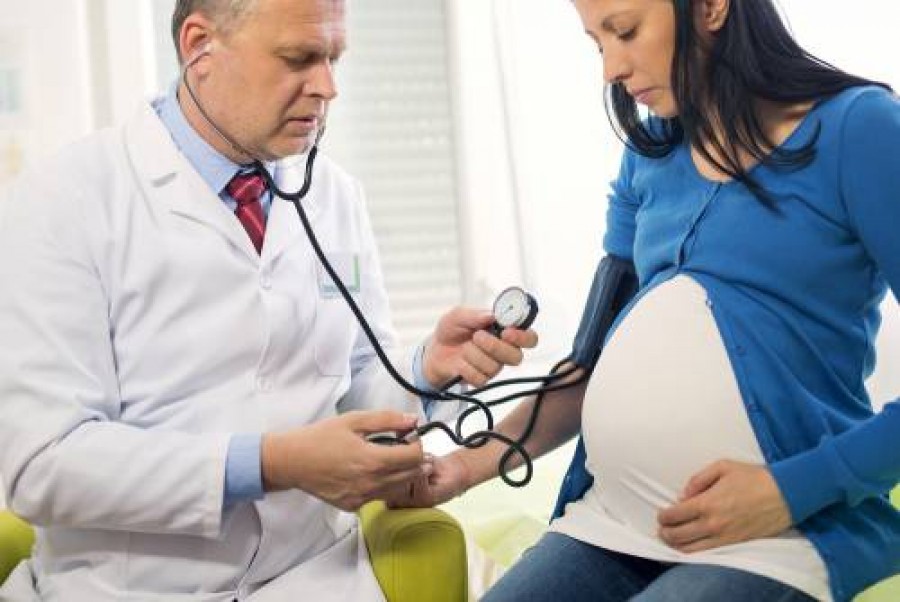Constipation, Gas & Bloating During Pregnancy

Gas, bloating and constipation during pregnancy are common complaints for many women. More than 50% of expecting mothers have to face pregnancy constipation.
These symptoms can be caused by a mixture of reasons – some of them are just a natural occurrence of growing a baby, while others you can help to minimise and manage.
While it might be one of the less pleasant symptoms you’ll have to manage during your pregnancy, there are some ways to help relieve it.
Why will I experience more bloating and constipation during pregnancy?
The hormonal levels of progesterone increase sharply during pregnancy. This increase in progesterone impacts your entire body – including the digestive tract. It’s one of the commonly cited reasons for experience more gas, bloating and constipation.
As you progress through your pregnancy and your baby grows, they take up more space and put pressure on your internal organs. You’ll experience by needed to go to the toilet more often, as the baby squeezes the bladder but you’ll also experience this as constipation has the baby puts pressure on (and essentially blocks!) the digestive tract.
Because of the amount of room your baby takes up internally, and the pressure on your internal digestive system, you will probably find that everything slows down, resulting in bloating and constipation.
Another cause is related to the supplements that many women are advised to take to aid their pregnancy. High iron supplements which are compulsory for people with iron deficiency can make the experience of gas, bloating and constipation worse.
Ways to Relieve Pregnancy Constipation
As mentioned, some of the causes for these symptoms during pregnancy are simply down to being pregnant, but that doesn’t mean that you can’t do some things to help minimise and treat symptoms.
One of the main causes for gas, bloating and constipation (pregnant or otherwise) is down to your diet and water intake, as well as being inactive. A healthy, active lifestyle can make all the difference when it comes to relieving these complaints and that’s no different even when you’re pregnant.
Ideally you should eat fibre-rich foods in your diet, such as green vegetables, whole-grains and fruits and avoid food that might cause constipation or make it worse for example high-carbohydrates diets.
Here are a few steps you can take to keep yourself, and your digestive tract, in the best of shape:
#1 Eat little and often
Rather than sitting down to three big meals a day, which will then sit in your digestive tract and cause gas and bloating, try switching to smaller more frequent meals. Light bites 6-8 times a day of healthy foods will help keep things moving.
#2 Eat the right type of food
Make sure you’re eating the right combination of foods. A high carb, starchy and sugar rich diet isn’t going to help anyone! Be sure to eat plenty of high energy, fibre rich and protein foods. Think dark greens, organic chicken, fresh fruits and light pulses.
#3 Drinking lots of water
Water will be your best friend during pregnancy! It’s the best thing you can do for your changing body, and although in the later stages you may find you’re nipping to the toilet more frequently it really will help with bloating and constipation. So that might actually be a good thing!
#4 Exercise regularly
Regular light exercise such as brisk walking, swimming, dancing and pregnancy yoga help to keep your body active and healthy – including all your internal plumbing! Just because you’re pregnant doesn’t mean you skip the exercise, but keep it light and comfortable for you and baby.
#5 Speak to your doctor about additional supplements
Find out if you really need to be taking additional iron or pregnancy supplements that can add to constipation symptoms. Your blood tests will tell you if you really need them or not. Your doctor will also be able to let you know of any natural aids or supplements that can help relieve these symptoms if it’s really getting too much.
When should I seek medical help for bloating and constipation?
Constipation during pregnancy is not usually a sign of anything more serious, and can will pass naturally as you transition through your trimesters.
However if you have had constipation for a prolonged amount of time (more than 5 days), or you are experiencing other symptoms such as abdominal pain, intermittent diarrhea with constipation or you notice mucus or blood in your urine or stools – make sure you seek medical attention immediately.
Your body will go through a lot of changes during pregnancy and each of them will bring weird and wonderful symptoms! Some women will experience all of them, some of them or if they’re really lucky – none of them!
Everyone is different. What’s really important is knowing what feels ‘right’ for you and if you’re in pain, feeling stressed or worried, then always speak to your doctor or midwife who can reassure you and carry out further tests if needed.


